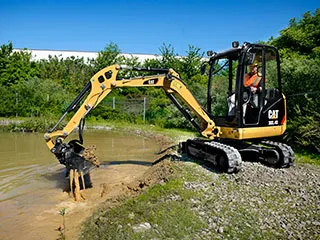In an opinion piece published by the IRF, Matthew Jordan-Tank, head of infrastructure policy and IPPF, European Bank for Reconstruction and Development (EBRD) has explained that extending the functional life of road assets can be achieved using performance-based contracts.
In most developing and merging market economies, roads require rehabilitation, or even reconstruction, many years prior to the expected date. Simply put: usable life is not equal to design life, and it is not uncommon to find that a ro
April 7, 2017
Read time: 2 mins
RSSIn an opinion piece published by the 3918 IRF Washington, Matthew Jordan-Tank, head of infrastructure policy and IPPF, European Bank for Reconstruction and Development (EBRD) has explained that extending the functional life of road assets can be achieved using performance-based contracts.
In most developing and merging market economies, roads require rehabilitation, or even reconstruction, many years prior to the expected date. Simply put: usable life is not equal to design life, and it is not uncommon to find that a road must be rehabilitated only halfway into its estimated original asset duration. While harsh climate conditions with large seasonal temperature changes may play a role, much of this 'premature' investment boils down to lack of systematic maintenance that is normally applied in countries with regular 'asset management' funding regimes.
Applying performance-based maintenance contracting to the road sector can produce significant fiscal improvements, as well as user benefits in the form of better maintained and therefore safer roads.
EBRD recently published a paper providing a condensed yet substantive overview of the key international lessons learned in the area of performance-based contracts.
In most developing and merging market economies, roads require rehabilitation, or even reconstruction, many years prior to the expected date. Simply put: usable life is not equal to design life, and it is not uncommon to find that a road must be rehabilitated only halfway into its estimated original asset duration. While harsh climate conditions with large seasonal temperature changes may play a role, much of this 'premature' investment boils down to lack of systematic maintenance that is normally applied in countries with regular 'asset management' funding regimes.
Applying performance-based maintenance contracting to the road sector can produce significant fiscal improvements, as well as user benefits in the form of better maintained and therefore safer roads.
EBRD recently published a paper providing a condensed yet substantive overview of the key international lessons learned in the area of performance-based contracts.






